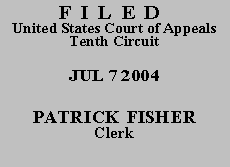

| TANYA R. GARSIDE,
Plaintiff-Appellant, v. JO ANNE B. BARNHART, Commissioner of Social Security Administration, Defendant-Appellee. |
|
Plaintiff-appellant Tanya R. Garside appeals the Commissioner's decision denying Garside disability benefits. Garside alleges she has been disabled since January 18, 2000, from an unspecified connective-tissue disease similar to chronic fatigue syndrome or fibromyalgia, as well as headaches, anxiety, depression, and diminished memory and concentration. However, the administrative law judge (ALJ) determined at the relevant analysis' fifth step, see 20 C.F.R. § 404.1520, that Garside remains capable of performing simple, routine sedentary work not involving contact with the public. Based on the vocational expert's testimony, the ALJ found Garside could still work as a non-construction laborer or a surveillance system monitor.
The Appeals Council denied review, making the ALJ's decision the Commissioner's final determination. See, e.g., Doyal v. Barnhart, 331 F.3d 758, 759 (10th Cir. 2003). Reviewing that decision only to determine whether the ALJ applied the law correctly and whether there was substantial evidence to support the decision, see Hamlin v. Barnhart, 365 F.3d 1208, 1214 (10th Cir. 2004), we affirm.
Garside first contends the ALJ failed to consider fully Garside's mental limitations before determining that she retains the residual functional capacity to perform simple, routine sedentary work not involving contact with the public. Our review of the record persuades us to the contrary. The record contains substantial evidence supporting the ALJ's conclusion that Garside's mental condition does not further limit her ability to work.
Garside also asserts the ALJ erred in "determin[ing] that there is no objective medical evidence in the records that would substantiate Garside's diagnosis of fibromyalgia." Appellant's Br. at 9. But the ALJ did not make such a determination. Rather, the ALJ's references to which Garside objects are accurate restatements of Garside's medical records. Those records indicate that Garside's treating physicians had difficulty identifying the specific connective-tissue disease causing her symptoms, offering several different diagnoses, such as lupus, chronic fatigue syndrome and fibromyalgia. See generally Adams v. Chater, 93 F.3d 712, 714 (10th Cir. 1996) (noting doctors diagnose chronic fatigue syndrome by excluding other possible disorders). Nevertheless, the ALJ specifically found that Garside does suffer from a severe connective-tissue disease that "more than minimally limit[s] [her] ability to perform some" basic work activities. Aplt. App. at 14; see also id. at 354 (ALJ noted, at hearing, "it may not be entirely clear whether it's fibromyalgia, Epstein Bar[r] syndrome, chronic fatigue syndrome, but there's enough medical findings here to conclude there's a medical condition involving one of these problems. The symptom complex . . . is fairly well established . . . ."). Moreover, the ALJ did not discount Garside's treating physicians' opinions, as she asserts.
We have thoroughly reviewed the entire record in light of all Garside's arguments. Based on the governing standards, we are unable to conclude the ALJ erred in finding that Garside is not disabled. We therefore AFFIRM the judgment of the district court upholding the Commissioner's decision denying benefits.
Entered for the Court
Circuit Judge
*. This order and judgment is not binding precedent, except under the doctrines of law of the case, res judicata, and collateral estoppel. The court generally disfavors the citation of orders and judgments; nevertheless, an order and judgment may be cited under the terms and conditions of 10th Cir. R. 36.3.
2. The Honorable John L. Kane, Senior District Judge, United States District Court for the District of Colorado, sitting by designation.